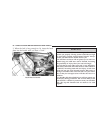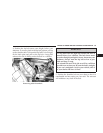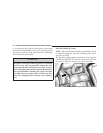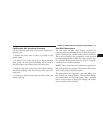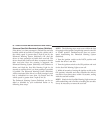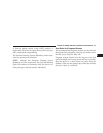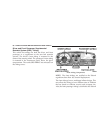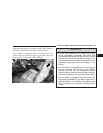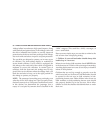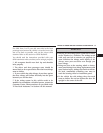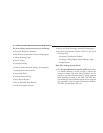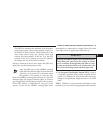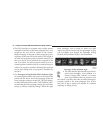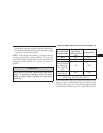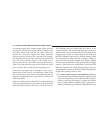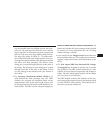
Airbags inflate in moderate to high speed impacts. Along
with seat belts and pretensioners, front airbags work with
the driver inflatable knee blocker to provide improved
protection for the driver and front passenger. Side airbags
also work with seat belts to improve occupant protection.
The seat belts are designed to protect you in many types
of collisions. The front airbags deploy in moderate to
severe frontal collisions. If your vehicle is equipped, the
side airbag on the crash side of the vehicle is triggered in
moderate to severe side collisions. In certain types of
collisions, both the front and side airbags may be trig-
gered. But even in collisions where the airbags work, you
need the seat belts to keep you in the right position for
the airbags to protect you properly.
NOTE: The passenger front airbag may not deploy even
when the driver front airbag has if the Occupant Classi-
fication System (refer to ЉOccupant Classification SystemЉ
in this section) has determined the passenger seat is
empty or is occupied by someone that is classified in the
“child” category. This could be a child, a teenager, or
even a small adult.
Here are some simple steps you can take to minimize the
risk of harm from a deploying airbag.
1. Children 12 years old and under should always ride
buckled up in a rear seat.
Infants in rear facing child restraints should NEVER ride
in the front seat of a vehicle with a passenger front airbag.
An airbag deployment can cause severe injury or death to
infants in that position.
Children that are not big enough to properly wear the
vehicle seat belt (see Section on Child Restraints) should
be secured in the rear seat in child restraints or belt-
positioning booster seats. Older children who do not use
child restraints or belt-positioning booster seats should
ride properly buckled up in the rear seat. Never allow
children to slide the shoulder belt behind them or under
their arm.
90 THINGS TO KNOW BEFORE STARTING YOUR VEHICLE



